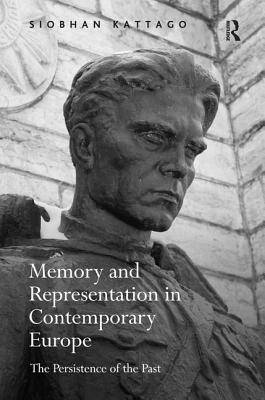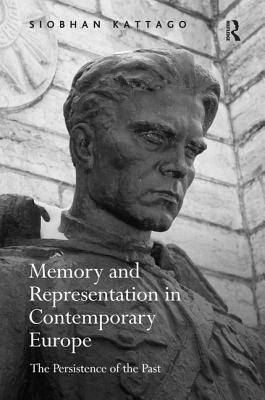
- Afhalen na 1 uur in een winkel met voorraad
- Gratis thuislevering in België vanaf € 30
- Ruim aanbod met 7 miljoen producten
- Afhalen na 1 uur in een winkel met voorraad
- Gratis thuislevering in België vanaf € 30
- Ruim aanbod met 7 miljoen producten
Zoeken
Memory and Representation in Contemporary Europe
The Persistence of the Past
Siobhan Kattago
Hardcover | Engels
€ 183,45
+ 366 punten
Uitvoering
Omschrijving
Why do certain places and not others symbolically capture the past and freeze time? Likewise, why does the process of memory, as a fluid and changing activity, seem to prevent its own solidification? Memory and Representation in Contemporary Europe reflects not only on the persistence of the past as a theme linked to modernity, media and time, but also discusses the politics of memory within a changing Europe. Drawing on the theoretical work of Hannah Arendt, Isaiah Berlin and Zygmunt Bauman, Siobhan Kattago uses examples from both Germany and Estonia in order to address the multiple layers of Europe's totalitarian past. Through reflecting on the legacy of totalitarianism and the revolutions of 1989, it becomes clear that the issue is less of whether one should remember, but rather how to internalize the various lessons of the past for the future of Europe. Memory and Representation in Contemporary Europe thus offers the reader occasions upon which to take stock of different but overlapping contours of past and present in contemporary Europe.
Specificaties
Betrokkenen
- Auteur(s):
- Uitgeverij:
Inhoud
- Aantal bladzijden:
- 152
- Taal:
- Engels
Eigenschappen
- Productcode (EAN):
- 9781409436379
- Verschijningsdatum:
- 28/01/2012
- Uitvoering:
- Hardcover
- Formaat:
- Genaaid
- Afmetingen:
- 156 mm x 234 mm
- Gewicht:
- 390 g

Alleen bij Standaard Boekhandel
+ 366 punten op je klantenkaart van Standaard Boekhandel
Beoordelingen
We publiceren alleen reviews die voldoen aan de voorwaarden voor reviews. Bekijk onze voorwaarden voor reviews.











